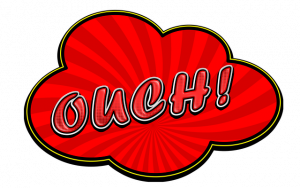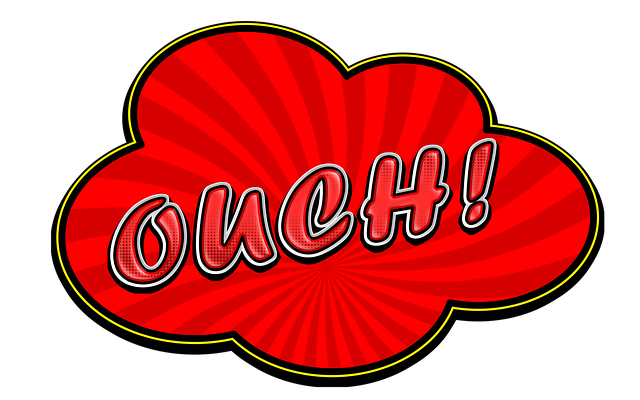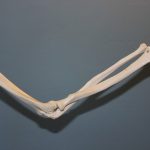I am aware of how debilitating and irritating it can be to endure persistent pain. Whether you have back pain, migraines, arthritis, or any other chronic condition, it is essential that you effectively manage your symptoms to maintain your quality of life.
You can successfully manage your chronic pain with the help of a number of strategies. Finding the optimal combination of techniques, ranging from medication and physical therapy to lifestyle modifications and alternative treatments, is essential for reducing your discomfort and enhancing your overall health.
In this article, we will discuss some effective methods for managing chronic pain that have provided relief to numerous patients over the years. By incorporating these strategies into your daily life, you, too, can gain control over your symptoms and begin leading a more comfortable life.
Understanding The Causes Of Chronic Pain
 The prevalence of chronic pain is increasing globally and affects individuals of all ages.
The prevalence of chronic pain is increasing globally and affects individuals of all ages.
Pain that persists for longer than three months is considered chronic. It can have a variety of causes, such as an injury or a disease, but sometimes the cause is undetermined.
There are various forms of chronic pain, including neuropathy, somatic pain, visceral pain, and psychogenic pain. Neuropathic discomfort occurs when the body’s nerves are compromised. Somatic discomfort refers to injuries to the body, such as cuts and bruises. Visceral discomfort originates from organs such as the liver or stomach. Psychogenic pain has no apparent physical cause and may be caused by mental health problems.
Understanding the various types of chronic pain improves our ability to diagnose and treat the condition. The next phase will involve identifying the specific type of chronic pain you are experiencing so that we can design a plan that is tailored to your needs.
I am confident that with our combined efforts, we will be able to effectively manage your chronic discomfort without compromising your quality of life.
Medications Used To Manage Chronic Pain
There are a variety of medication options available for the management of chronic pain.
Opioids are one of the most common varieties, but due to the risk of addiction and overdose, they should only be used as a last resort. The alternatives to opioids include nonsteroidal anti-inflammatory medications (NSAIDs), antidepressants, and anticonvulsants.
It is essential that patients understand dosage regulations exist for a reason. Any medication overdose can result in severe consequences, including mortality.
In addition, some drugs may interact with one another or with preexisting medical conditions. It is essential that individuals work closely with their healthcare provider when determining the appropriate dosages and drug combinations.
In the end, medication alone cannot effectively treat chronic pain. Patients must also adopt healthy lifestyle practises, such as regular exercise and stress management techniques such as meditation and therapy.
Combined with proper medication use and dosage regulation under the supervision of a healthcare professional, these strategies can assist individuals in effectively managing their chronic pain and enhancing their overall quality of life.
Physical Therapy And Rehabilitative Measures
Physical therapy and rehabilitation may sound intimidating to those who are already experiencing discomfort. It is paradoxical, however, that so many patients disregard the benefits of customised exercises and pain-free movement in the management of their conditions.
Physical therapy consists of a variety of techniques designed to alleviate pain, restore function, and prevent muscle atrophy and injury. Your therapist will assess your condition and design an exercise regimen specifically for your requirements. These programmes can help enhance range of motion, flexibility, strength, balance, and posture.
Rehabilitation not only provides symptom relief, but also prepares patients for long-term health. You can maintain healthy practises that keep your body functioning optimally with continued effort.
Therefore, do not let dread prevent you from exploring these options. Working with a trained professional can be instrumental in putting you on the path to living your life to the fullest without constant pain impeding daily activities.
Lifestyle Modifications For Pain Relief
Changing your lifestyle is an essential component of managing chronic pain. By altering your diet and exercise regimen, you can reduce inflammation and enhance your health as a whole. These modifications may provide pain relief and increase energy levels.
Dietary modifications are essential for managing chronic pain. Consuming anti-inflammatory nutrients such as leafy greens, berries, nuts, whole grains, and omega-3-rich fish such as salmon and mackerel can help reduce inflammation in the body.
Conversely, processed foods high in sugar, sodium, and unhealthy fats should be avoided because they can cause inflammation.
Exercise routines can also play a significant role in reducing the symptoms of chronic pain. Engaging in low-impact physical activities, such as walking or swimming, can strengthen the muscles that support the joints and increase their flexibility and range of motion.
Exercise produces endorphins, which act as natural analgesics and mood enhancers.
* Consume healthful foods to reduce pain * Shed excess weight * Be active or lose weight! Innovate your workouts * Monitor your progress
By modifying your diet and incorporating regular exercise into your daily routine, you will experience improvements to your physical and mental health.
Before beginning a new exercise regimen or making a significant dietary change, you should consult a healthcare professional.
Alternative And Complementary Medical Therapies
Changes in lifestyle, as discussed in the previous section, can significantly alleviate chronic pain. However, these measures may not always be sufficient to provide complete relief. This is where complementary and alternative treatments come into action.
Massage therapy is one of the most prevalent methods for managing chronic pain. Massage relaxes muscles, reduces inflammation, and enhances circulation, all of which contribute to a decrease in pain levels.
Similarly, acupuncture has been utilised effectively as a treatment for chronic pain for centuries. Acupuncture involves inserting thin needles into specific body points to stimulate nerve endings and promote natural healing processes.
Herbal remedies are another option that many patients find beneficial. Herbs with anti-inflammatory properties, such as turmeric, ginger, and chamomile, can help alleviate aches and pains naturally, without the use of medications with potential adverse effects.
Due to their ability to increase flexibility, strength, and balance while decreasing stress, yoga and tai chi are also acquiring popularity as complementary treatments for chronic pain management.
Incorporating alternative and complementary treatments alongside conventional medical care can result in improved chronic pain management outcomes. It is essential to work with a healthcare provider who understands your unique requirements and encourages you to explore various options until you find the one that works best.
Remember that everyone’s path to pain relief will be unique, but by utilising the available resources, you can resume living a more comfortable existence.
Mind-Body Pain Management Techniques
Incorporating mind-body techniques into treatment programmes has proven to be highly effective for symptom management.
Breathing exercises have been shown to reduce stress and anxiety and promote relaxation. Regularly performing these exercises can aid in relieving muscle tension and decreasing the perception of discomfort.
Visualisation techniques are an additional effective method for treating chronic pain. By visualising calming images or favourable outcomes, patients can redirect their attention away from their discomfort and towards feelings of peace and well-being. This process induces the release of endorphins, which act as natural analgesics and alleviate physical symptoms.
Mind-body techniques provide individuals with chronic pain with an alternative, non-invasive method of symptom management that is simple to incorporate into daily life. Breathing exercises and visualisation techniques can become valuable instruments for reducing discomfort and enhancing life quality with regular practise.
Expert Assistance for Chronic Pain
Clinics specialising in pain management are the go-to resource for chronic pain. The staff at these specialised facilities specialises in providing relief from persistent and severe distress.
They offer a variety of treatments, ranging from medication management to physical therapy, to help patients manage their symptoms.
You will work with experienced pain management specialists, which is one of the greatest advantages of seeking professional assistance. They can tailor your treatment plan to your medical history, lifestyle, and specific requirements, among other variables.
This individualised approach guarantees that you receive optimal care and support throughout your journey to effectively manage your pain.
Do not hesitate to seek professional assistance from a reputable pain management clinic or specialist if you suffer from chronic pain. Remember that effective management requires consistent effort and dedication, but with the right guidance and resources, you can attain long-term respite and improve your quality of life.
Can Chronic Pain Ever Be Cured Or Eliminated Completely?
I am frequently asked whether chronic pain can be wholly cured or eliminated. Sadly, the answer is negative.
However, there are coping strategies and pain management techniques that can help individuals manage their daily chronic pain.
It is crucial to collaborate with your healthcare provider to develop a personalised treatment plan that includes both medication and non-medication approaches, such as exercise, relaxation techniques, and cognitive-behavioral therapy.
By incorporating these techniques into your daily routine, you can enhance your quality of life and reduce the negative effects of chronic pain on your overall health.
Are There Any Natural Remedies Or Supplements That Can Manage Chronic Pain Effectively?
I am frequently asked if there are any natural remedies or dietary supplements that can effectively treat the debilitating symptoms of this condition.
And while it may seem like an exaggeration to say that herbal remedies and acupuncture have been known to work miracles in some cases, the reality is that many patients have found significant relief by incorporating these alternative therapies into their treatment plans.
Obviously, as with any form of medical intervention, results may vary depending on the individual case, but for those who are unable to find relief through conventional methods, it may be worthwhile to investigate these alternatives.
How does chronic pain impact mental health, and what can be done about it?
Chronic pain can have a significant effect on mental health, resulting in anxiety, melancholy, and diminished quality of life.
When managing chronic pain, it is essential to address the mind-body connection by incorporating techniques such as mindfulness meditation, deep breathing exercises, and yoga into daily routines.
Additionally, cognitive-behavioral therapy (CBT) can assist individuals in developing coping mechanisms and altering negative thought patterns.
By addressing both the physical and emotional aspects of chronic pain management with mind-body techniques and therapy options, individuals can improve their overall well-being and reduce the impact of chronic pain on mental health.
What role does diet play in chronic pain management?
I cannot overstate the importance of nutrition therapy in the treatment of this condition. Anti-inflammatory foods can do marvels for managing chronic pain symptoms. Incorporating these food types into your diet can substantially reduce inflammation and alleviate some of the discomfort caused by this condition.
In fact, it is not an exaggeration to assert that what we consume has a significant impact on our overall health. By providing the body with the necessary nutrients, vitamins, and minerals for optimal health, we are able to more effectively manage chronic pain.
How can family and friends best assist an individual with chronic pain?
I frequently hear from patients that the support of their family and peers is essential to managing their illness.
Educating themselves about chronic pain and its effects on daily life is an important method for loved ones to provide this support.
This includes comprehending the physical and emotional toll it takes on a person, as well as their medications and treatments.
In addition, providing practical assistance such as assistance with domestic chores or transportation to medical appointments can significantly alleviate the burden of a person with chronic pain.
Encouragement of healthy coping strategies, such as exercise, meditation, and other relaxation techniques, can also be beneficial for symptom management.
Having a robust support network can ultimately make all the difference for those with chronic pain.
It is essential to recognise that chronic pain cannot always be completely eliminated or cured, but it can be effectively managed with the appropriate tools and support.
Acupuncture, massage therapy, and specific supplements have demonstrated promise in the treatment of chronic pain. In addition, a healthy diet and exercise routine can play a significant role in reducing inflammation and alleviating symptoms. Before beginning a new treatment regimen, it is essential to consult your healthcare provider.
Chronic pain affects not only the physical health of the body, but also the mental health to a significant degree. Seeing a therapist or joining a support group can help alleviate the emotional distress of chronic pain.
Finally, having a strong network of family and acquaintances is essential for coping with this condition. Remember to take care of yourself physically and mentally; despite your chronic pain, you deserve a fulfilling existence.









